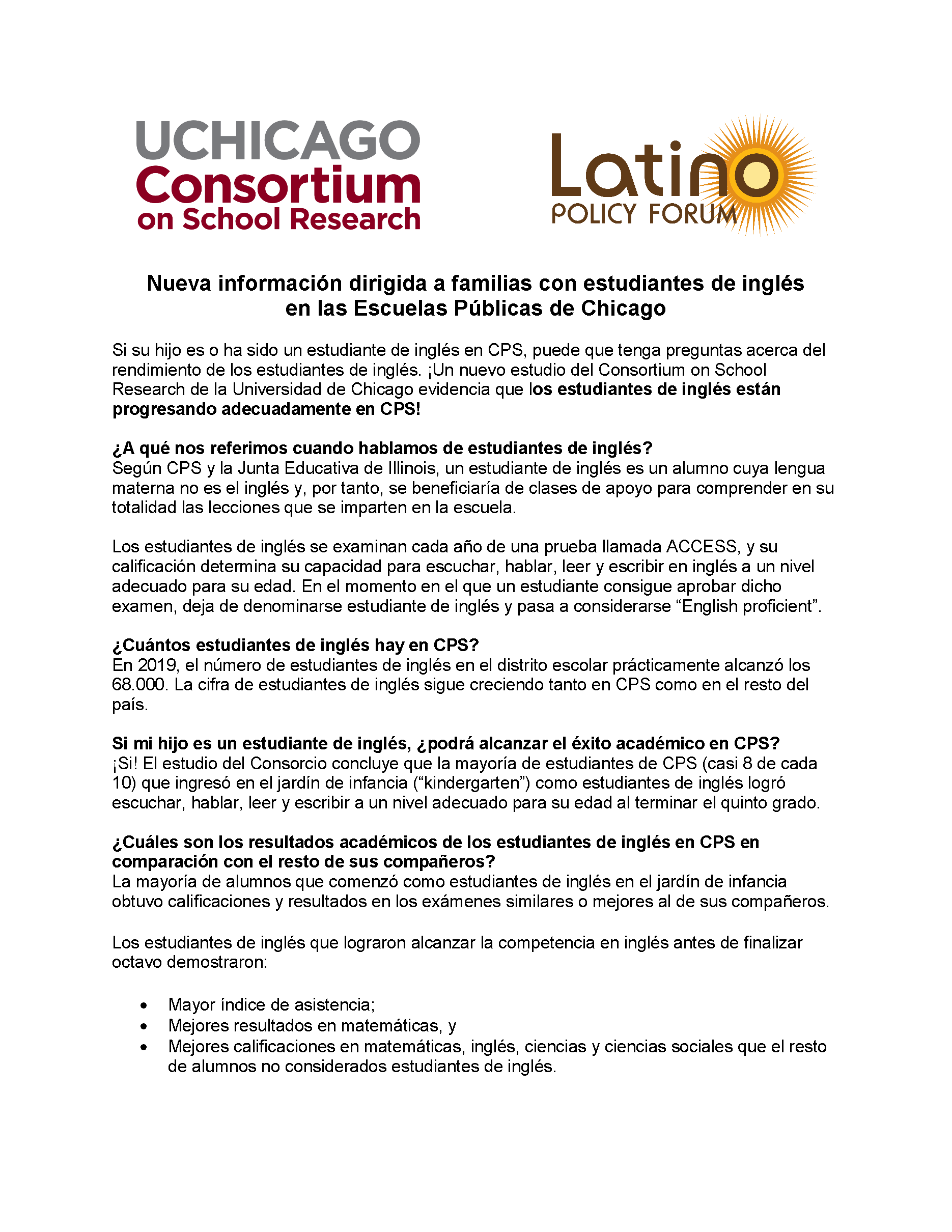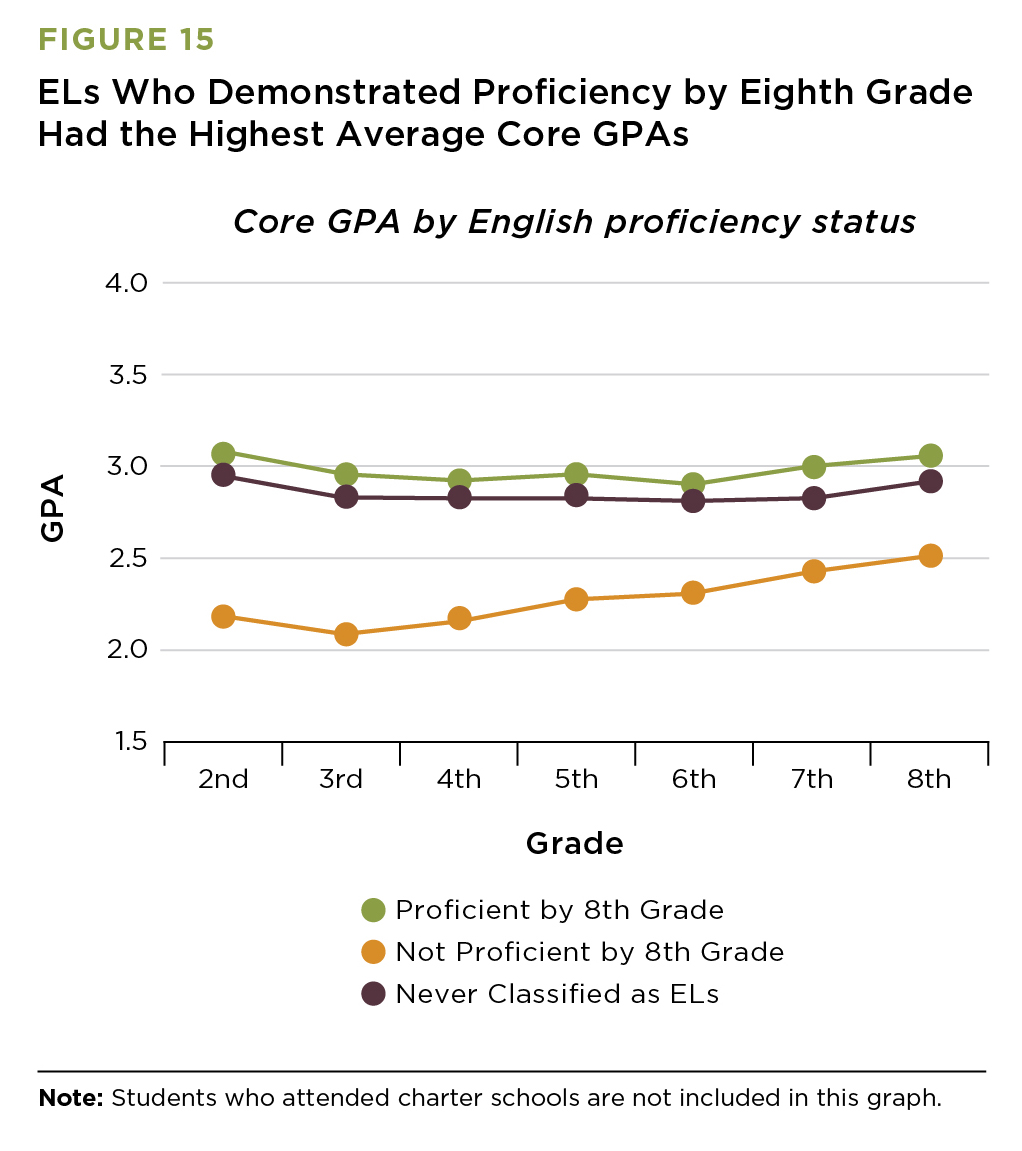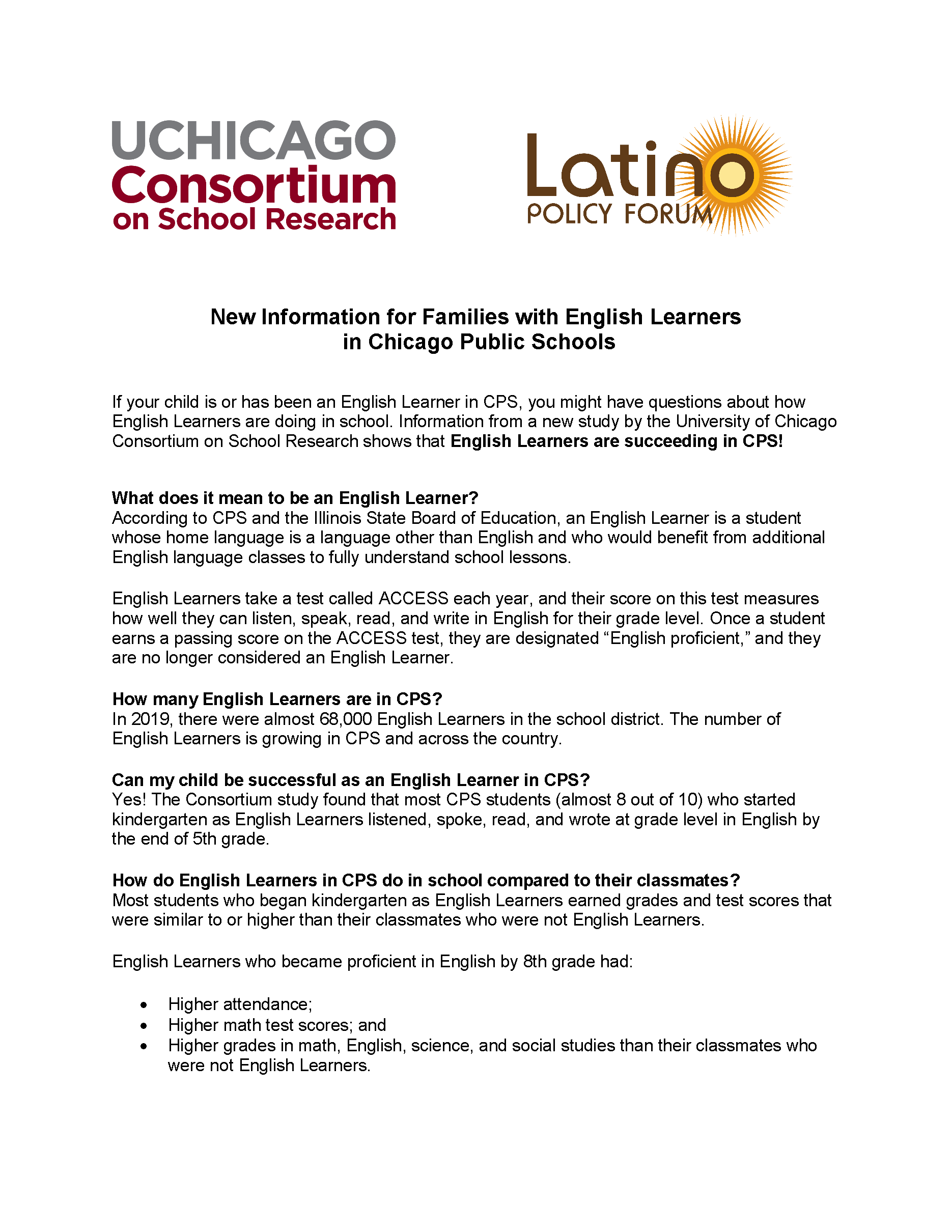1. How does the academic performance of CPS students who enter kindergarten as ELs compare, over time, to students who enter kindergarten as proficient or native-English speakers?
2. How are CPS students who enter kindergarten as ELs progressing toward English proficiency?
3. What differentiates CPS students who do not demonstrate English proficiency by the end of eighth grade, and how is their academic performance different from ELs who achieved English proficiency by eighth grade?
Previous studies about ELs have reported data on active English Learners—defined as those students who have not yet reached proficiency on a state English test—at a specific moment in time. This study, for the first time, analyzed the long-term trajectories of 18,000 CPS students who began kindergarten as ELs and followed their progress all the way through eighth grade.
Chicago Public Schools (CPS) students who began kindergarten as ELs, on average, progressed to eighth grade with academic achievement similar to or better than their peers who began kindergarten proficient in English. Nearly 80 percent of CPS ELs achieved English proficiency by eighth grade, with the majority (76 percent) becoming proficient by fifth grade.
Key Findings
- Publicly-reported statistics often appear as though ELs are behind non-ELs. On average, from kindergarten to eighth grade, students who began as ELs actually had similar achievement and growth, and higher attendance, compared to students never classified as ELs. They also had similar Freshman OnTrack rates in ninth grade.
- More than 76 percent of CPS students who began kindergarten as ELs became proficient in English by fifth grade.
- The nearly one-quarter of ELs who did not attain English proficiency by the end of fifth grade were unlikely to reach proficiency before high school. Only an additional 2 percent reached proficiency by eighth grade for a total of 78 percent of ELs achieving English proficiency before entering high school.
- Students who began as ELs and demonstrated English proficiency by eighth grade had higher attendance, math test scores, and core course grades than their peers who were never classified as ELs; reading test scores and Freshman OnTrack rates were similar.
- About one-fifth of students who began kindergarten as ELs did not reach English proficiency by the end of eighth grade. This group of students was more likely to be male, much more likely to be identified as needing special education services, and in first grade, had significantly lower scores on the state English proficiency exam (ACCESS).
- ELs who did not achieve English proficiency by eighth grade also struggled with declining attendance by the middle grades, considerably lower grade point averages, and lower Freshman OnTrack rates.
- Future research could develop a method of identifying this group of students early on so that educators could design and implement more effective supports.







